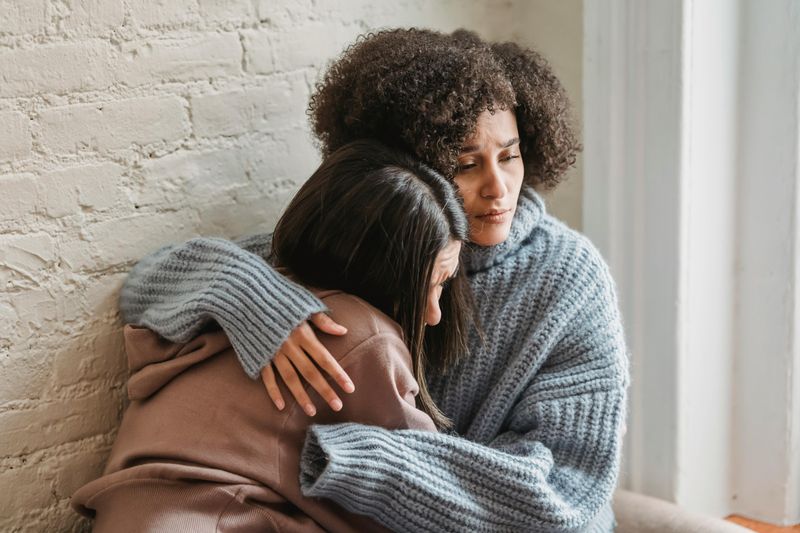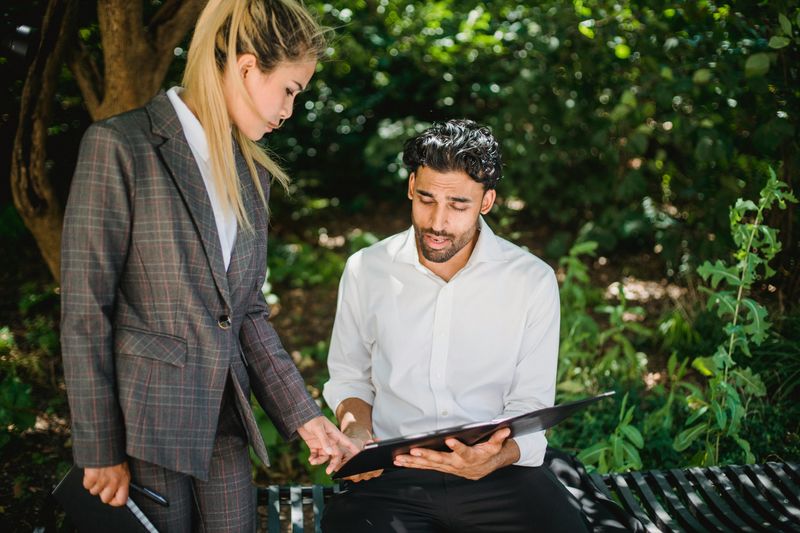12 Ways to Turn Breakups Into Personal Growth

Breakups hurt, and there’s no way around that. But what if the pain you’re feeling right now could actually help you become a stronger, more confident version of yourself?
While moving on from a relationship feels impossible at first, it’s also a chance to learn, grow, and discover things about yourself you never knew existed.
1. Reconnect With Your Own Identity

Relationships often blur the lines between who you are and who you are as part of a couple. After a breakup, you finally have space to remember what makes you unique.
Start doing things you loved before the relationship or explore new hobbies that genuinely interest you. Maybe you stopped painting, playing guitar, or hiking with friends because your schedule revolved around someone else.
Now is the perfect time to rediscover those passions. Spend time alone without feeling guilty about it. This isn’t selfish; it’s necessary for understanding who you truly are outside of a partnership.
2. Learn From Past Relationship Patterns

If you pay attention, every relationship leaves you wiser. Spend some time reflecting on your past partnerships to see what worked, what didn’t, and what you want going forward.
Were there warning signs you ignored early on? Did you compromise too much of yourself, or not enough? Understanding these patterns helps you make better choices next time.
Write down your thoughts or talk them through with a trusted friend. The goal isn’t to blame yourself or your ex, but to gain clarity. When you recognize unhealthy patterns, you can actively avoid repeating them in future relationships and build healthier connections.
3. Build Emotional Resilience

Breakups test your emotional strength in ways few other experiences can. The sadness, anger, and confusion you’re feeling are actually building your capacity to handle difficult emotions.
Each day you get through is proof that you’re stronger than you realized. Instead of avoiding your feelings, let yourself experience them fully. Cry when you need to, talk to friends, or write about your emotions.
This process teaches you that uncomfortable feelings won’t destroy you—they pass with time. The resilience you develop now will help you face future challenges with more confidence and less fear.
4. Establish Healthy Boundaries

Many people struggle with saying no or protecting their personal needs in relationships. A breakup gives you a clean slate to practice setting boundaries.
Start small by deciding what kind of contact you’ll have with your ex, if any. Maybe you need complete space to heal, or perhaps limited communication works better. There’s no right answer—only what feels healthy for you.
Apply this boundary-setting to other areas of your life too. Tell friends when you need alone time, or decline invitations that don’t serve your healing. Learning to honor your needs now creates a foundation for healthier future relationships.
5. Rediscover Independence and Self-Reliance

Being single forces you to rely on yourself in ways you might have forgotten. Suddenly, you’re making all your own decisions without consulting anyone else.
This independence can feel scary at first, but it’s incredibly empowering. Handle tasks you used to share—whether that’s managing finances, fixing things around the house, or planning your weekends entirely on your own terms.
Each small accomplishment reminds you that you’re capable and complete as an individual. You don’t need another person to feel whole or to live a fulfilling life. That realization is priceless and changes how you approach future relationships.
6. Invest Time in Meaningful Friendships

Romantic relationships sometimes overshadow friendships, leaving them neglected. Your breakup opens up time and emotional energy to strengthen bonds with people who’ve always been there.
Reach out to friends you haven’t seen in a while. Plan activities together, have deep conversations, or just hang out without any agenda. These connections remind you that love comes in many forms, not just romantic ones.
Friends offer support, laughter, and perspective during tough times. Nurturing these relationships now creates a strong support system that will sustain you through life’s ups and downs, whether you’re single or coupled up.
7. Develop Better Communication Skills

A lot of relationships end because of miscommunication. Looking back on those moments helps you learn how to express yourself better in the future.
Did you struggle to express your needs clearly? Did you shut down during conflicts instead of working through them? Identifying these issues is the first step toward improvement.
Practice honest communication with friends and family now. Say what you mean, listen actively, and don’t be afraid of difficult conversations. These skills will transform all your relationships, making them deeper and more authentic. Good communication prevents misunderstandings and builds trust in ways nothing else can.
8. Focus on Physical and Mental Health

Heartbreak takes a toll on your body and mind, making self-care more important than ever. Use this transition period to establish healthy habits that support your overall wellbeing.
Start exercising regularly, even if it’s just walking around your neighborhood. Physical activity releases endorphins that naturally improve your mood. Pay attention to what you eat, aiming for nutritious meals that fuel your body properly.
Don’t neglect your mental health either—consider therapy, meditation, or journaling. Taking care of yourself sends a powerful message that you’re worth the effort, building self-esteem from the inside out.
9. Pursue Goals You Put on Hold

It’s easy to set aside personal goals when you’re committed to someone else. Now that the path is clear, you can finally chase the dreams you’ve been holding back.
Maybe you wanted to change careers, go back to school, travel somewhere specific, or start a creative project. Without coordinating schedules or considering another person’s preferences, you can pursue these goals wholeheartedly.
Make a list of things you’ve been wanting to do and start taking small steps toward them. Achieving personal goals reminds you of your capabilities and gives you a sense of purpose beyond romantic relationships. Your ambitions matter, and now nothing stands in your way.
10. Practice Self-Compassion and Forgiveness

After a breakup, it’s easy to blame yourself for everything that went wrong. But beating yourself up only prolongs the healing process and damages your self-worth.
Practice treating yourself with the same kindness you’d offer a good friend going through heartbreak. Acknowledge that you did your best with the knowledge and emotional tools you had at the time.
Forgive yourself for mistakes you made in the relationship. Nobody’s perfect, and relationships fail for complex reasons that rarely rest on one person’s shoulders. Self-compassion creates space for genuine healing and helps you move forward without carrying unnecessary guilt or shame.
11. Explore New Experiences and Perspectives

Being single gives you freedom to say yes to experiences you might have skipped while in a relationship. Step outside your comfort zone and try things you’ve never done before.
Take a class in something completely unfamiliar, visit places you’ve never been, or meet new people from different backgrounds. These experiences broaden your perspective and remind you that life holds endless possibilities.
Growth happens when you challenge yourself and embrace the unfamiliar. Each new experience adds depth to who you are and makes you more interesting, confident, and well-rounded. You might discover passions or talents you never knew existed.
12. Redefine What You Want in Future Relationships

Every relationship teaches you more about what you truly need from a partner. Use this time to get crystal clear on your relationship values and deal-breakers.
What qualities matter most to you in a partner? What behaviors are you no longer willing to tolerate? Understanding these things helps you make better choices when you’re ready to date again.
Write down your ideal relationship qualities, but stay flexible—nobody’s perfect, including you. The goal is to know yourself well enough to recognize when someone aligns with your values versus when you’re settling out of loneliness. This clarity protects your heart and energy moving forward.

Comments
Loading…